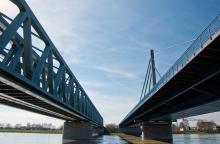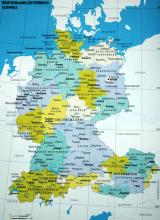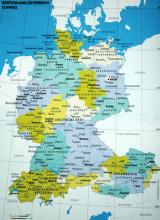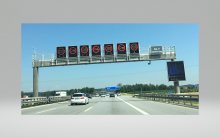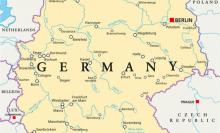
The Salier Bridge over the Rhine River in Baden-Wurttemberg, Germany, has reopened after almost three years of renovation and a big cost hike.
The 600m-long Salierbrücke, which opened in 1965, connects Germany’s Rhineland-Palatinate and Baden-Württemberg federal state and is used by around 28,000 vehicles daily. Extensive renovation and upgrading work was commissioned by the Karlsruhe city council in early 2019, with the total cost rising from €16.7 million to around €28.7 million (US$33.17 million), according to German media reports. During renovation, only ambulances, buses, cyclists and pedestrians were allowed to use the bridge.
The two-lane Salierbrücke is a haunched pre-stressed concrete and steel girder structure that carries Federal Highway 39 to connect nearby Speyer and Hockenheim. It also has a pedestrian and cycle path on both sides of the 14.2m-wide bridge deck.
Karlsruhe, population around 315,000, is home to Germany's largest oil refinery and Karlsruhe University, Germany’s oldest technical university. This past summer, planning restarted on a proposed road bridge to connect Karlsruhe and Wörth and to be built around 1.4km from another Rhine bridge. Planning was halted nearly four years ago after a legal complaint over environmental issues was filed by the town of Philipsburg, population of around 14,000 and on the banks of the Rhine about 35km from Karlsruhe.
Meanwhile, work has started on four valley bridges along the M45 autobahn. The bridges in Bornbach, Bechlingen, Heubach and Volkersbach are being replaced at a cost of around €214 million (US$247.3 million), according to motorway operator Autobahn-Gesellschaft des Bundes. Work between Herborn and Wetzlar is to be completed by October 2027.

